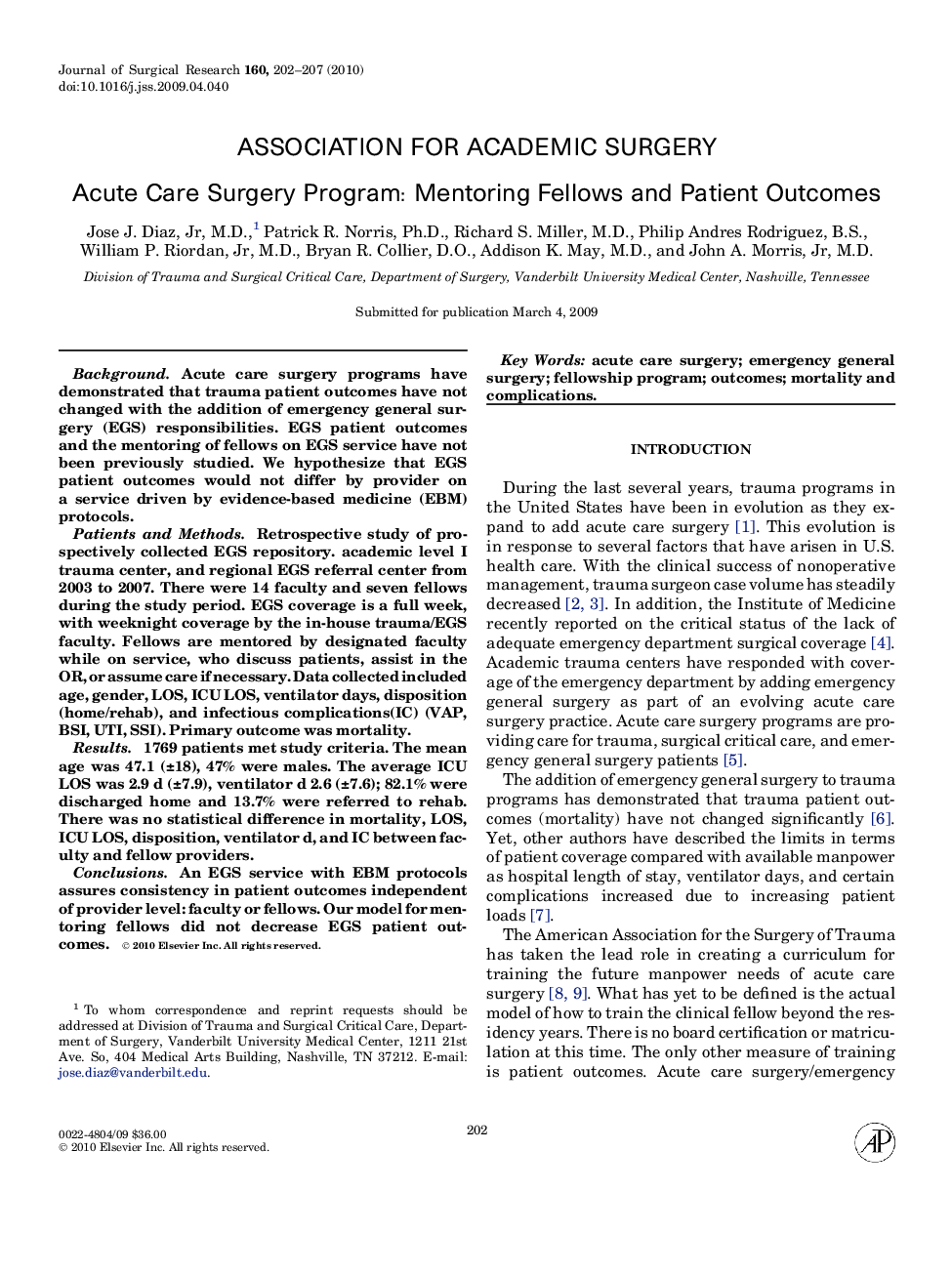| Article ID | Journal | Published Year | Pages | File Type |
|---|---|---|---|---|
| 4303101 | Journal of Surgical Research | 2010 | 6 Pages |
BackgroundAcute care surgery programs have demonstrated that trauma patient outcomes have not changed with the addition of emergency general surgery (EGS) responsibilities. EGS patient outcomes and the mentoring of fellows on EGS service have not been previously studied. We hypothesize that EGS patient outcomes would not differ by provider on a service driven by evidence-based medicine (EBM) protocols.Patients and MethodsRetrospective study of prospectively collected EGS repository. academic level I trauma center, and regional EGS referral center from 2003 to 2007. There were 14 faculty and seven fellows during the study period. EGS coverage is a full week, with weeknight coverage by the in-house trauma/EGS faculty. Fellows are mentored by designated faculty while on service, who discuss patients, assist in the OR, or assume care if necessary. Data collected included age, gender, LOS, ICU LOS, ventilator days, disposition (home/rehab), and infectious complications(IC) (VAP, BSI, UTI, SSI). Primary outcome was mortality.Results1769 patients met study criteria. The mean age was 47.1 (±18), 47% were males. The average ICU LOS was 2.9 d (±7.9), ventilator d 2.6 (±7.6); 82.1% were discharged home and 13.7% were referred to rehab. There was no statistical difference in mortality, LOS, ICU LOS, disposition, ventilator d, and IC between faculty and fellow providers.ConclusionsAn EGS service with EBM protocols assures consistency in patient outcomes independent of provider level: faculty or fellows. Our model for mentoring fellows did not decrease EGS patient outcomes.
